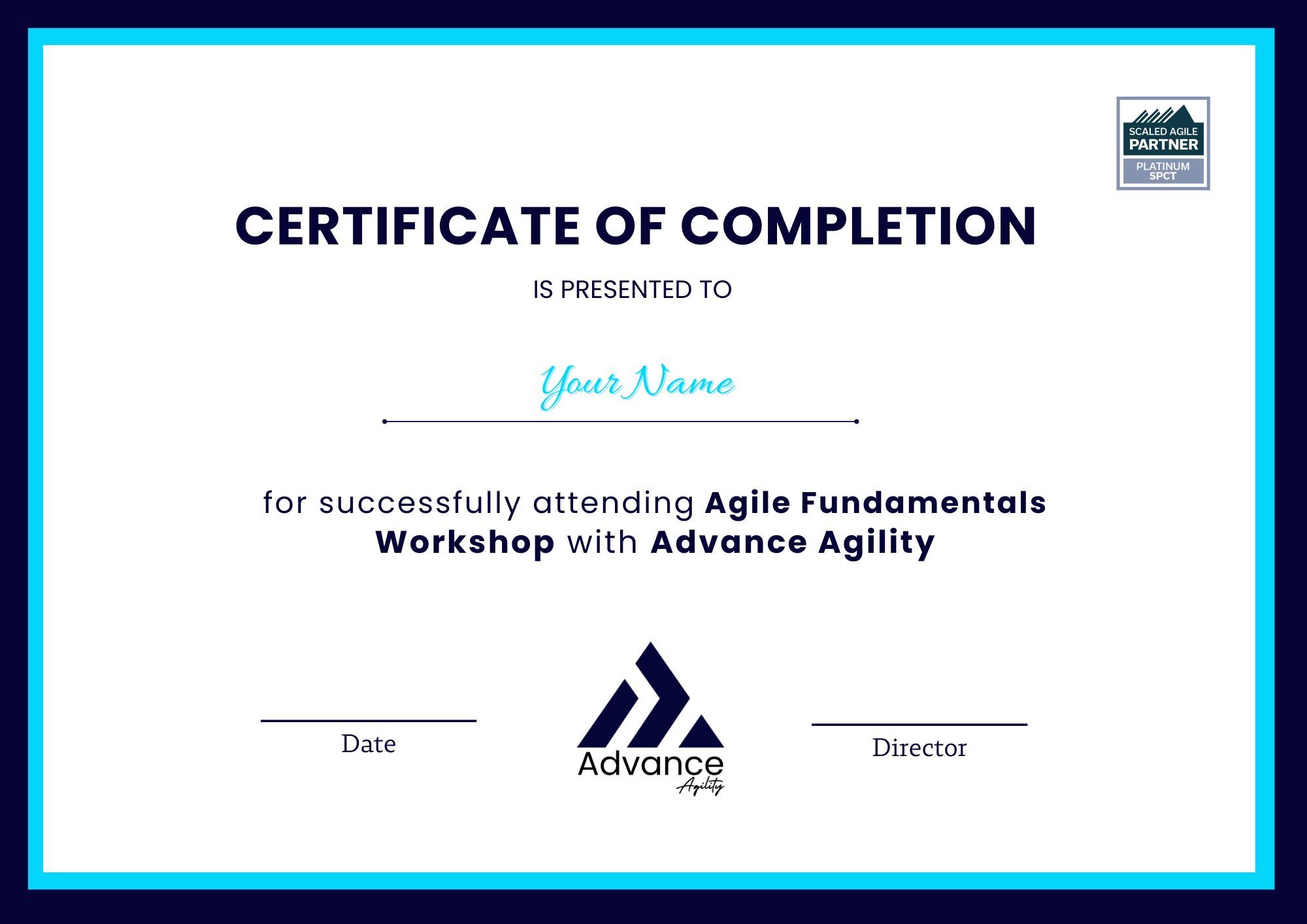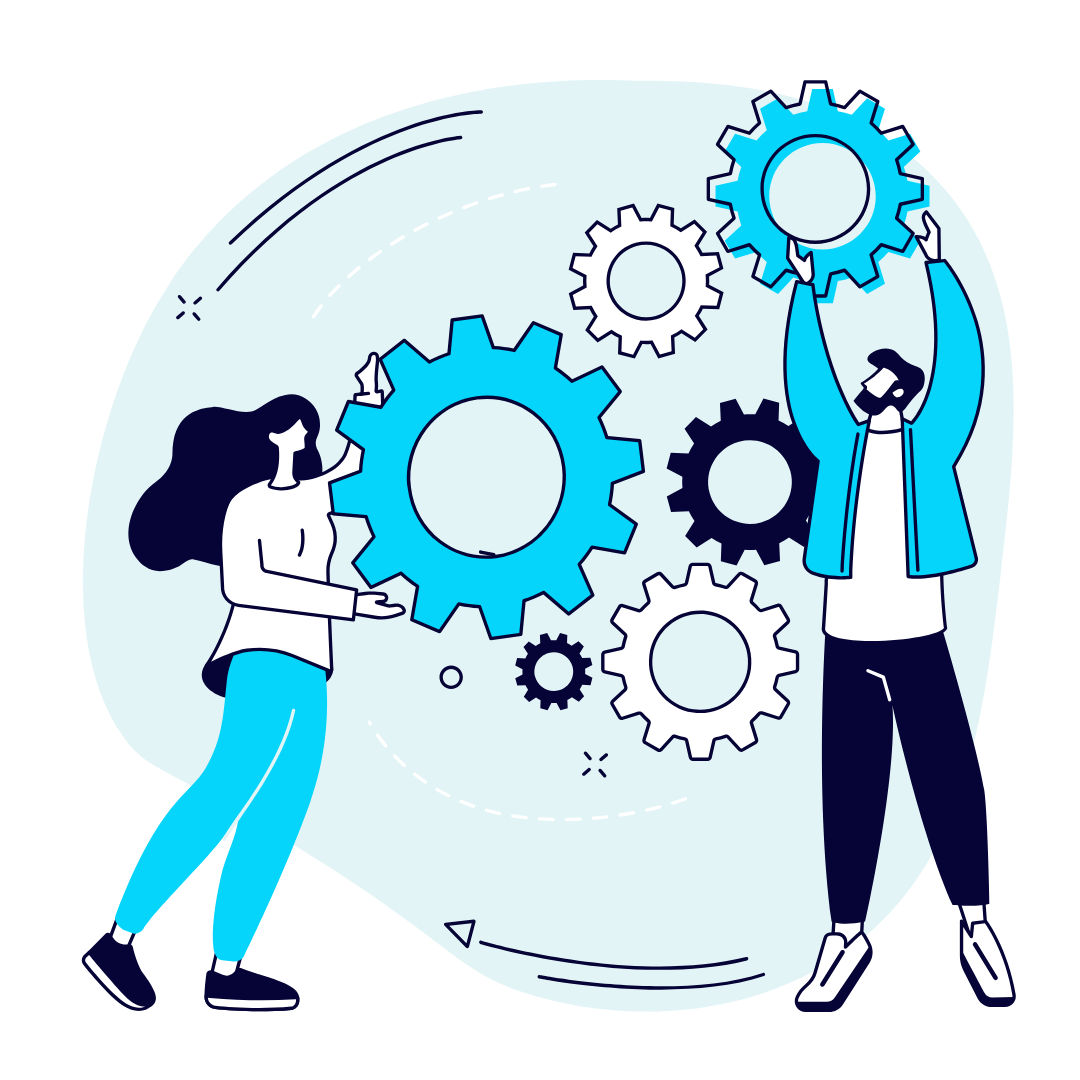Register Today and get 10% off on all our courses
Apply this Coupon Code: DIS10
Register Today and get 10% off on all our courses
Apply this Coupon Code: DIS10

Date
29 Jul
Time
4:00 AM - 8:00 AM (EDT)
4.9/5
4.9/5
Upcoming Events
+
+
+
In this comprehensive Agile Fundamental workshop, participants will explore the intrinsic necessity for estimation within Agile frameworks and master the art of Agile Estimation. You will learn “how to be agile while doing agile” in context of popular Agile approaches such as Scrum, Kanban and SAFe®.This course is designed to impart a profound understanding of Agile estimating practices, encompassing advanced techniques like story points, along with the adept use of tools such as burn-down and burn-up charts to enhance estimation and forecasting during product delivery within an Agile framework.
In the Agile fundamentals training course, participants will acquire insights into the agile mindset, values, principles, and fundamental concepts. The course delves into the practical implementation of Agility within prevalent Agile methodologies such as Scrum, Kanban, and SAFe®, offering insights on how to embody agility in practical scenarios.
Origin of Agile
Agile Manifesto and Principles
Agile Beyond Software Development
Enterprise agility is the strategic implementation of agile methodologies across the entire organization, with the effectiveness of agile practices closely tied to a company's ability to generate value. Embracing enterprise agility ensures adaptability and responsiveness to changing market dynamics, fostering sustained organizational success.
Understanding the Agile mindset
Establishing the Agile Mindset
Agile as a Journey
Within the realm of Agile fundamentals, Agile estimation stands as a cornerstone practice focused on gauging the effort needed for task completion. This foundational concept aligns with the Agile principle of embracing change, emphasizing the adaptability and iterative nature of estimating work. The adoption of techniques like weighing work, originating from the software industry and now integral to Agile methodologies, underscores the fundamental principles of flexibility and responsiveness within Agile teams.
Developing Soft Skills
Understanding Communication barriers
Sharing Knowledge
Physical Work Environments
Collaboration Techniques
Techniques for shared understanding
A self-organizing team epitomizes a key principle of Agile methodologies — empowering teams to collaborate and make decisions autonomously. This concept emphasizes the team's autonomy in determining and managing its workload, aligning with the Agile manifesto's preference for responding to change over following a plan. Alternatively, these teams autonomously identify their tasks and wield control over the associated responsibilities and deadlines, epitomizing the Agile principles of self-management and adaptability. This fosters adaptability and showcases core Agile values of collaboration and shared accountability.
Self-Organizing Teams
Cross-functional Teams
Priyanka has achieved value-driven worldwide transformative initiatives by developing and putting into practise organizational vision, mission, and business strategies while taking into account the dynamics of change in the enterprise environment, business priorities, market conditions, and organisational cultural sensitivity through a collaborative and iterative methodology building high performing teams to enable strategy execution.

Learning to lead Agile transformation in Our Teamenterprises & Get Certified
We encompass a comprehensive range of expertise, providing 360 guidance in established frameworks to our clients.
Rather than viewing ourselves merely as a vendor or provider, we see ourselves as dedicated partners in success, actively paving the way for our clients' future achievements.
Get professional guidance from
learning
advisors

Upskill and reskill your team with our corporate training programs.
Reach Us
29 Jul
We’re Agile, so we don’t need to estimate” Wrong!
Start
from
$500

29 Jul
Creative problem solving is increasingly recognized as the most sought-after skill in business.
Start
from
$500